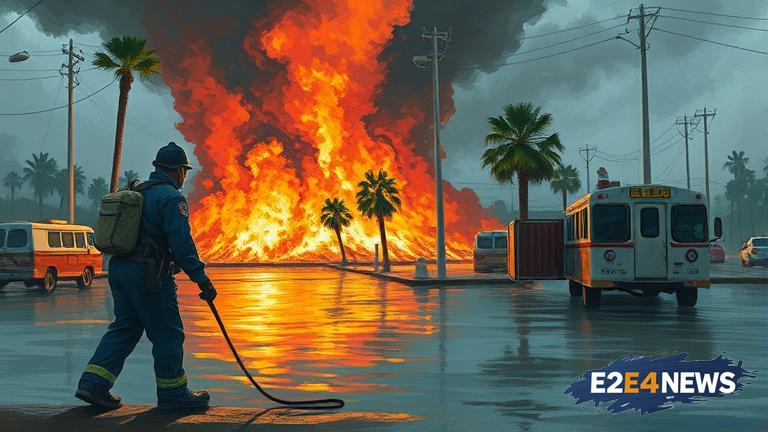The Federal Emergency Management Agency (FEMA) has been a crucial part of the United States’ disaster response efforts for decades. However, recent cuts to the agency’s budget have sparked fears among former staffers that the country is headed for a catastrophe on the scale of Hurricane Katrina. In 2005, Katrina ravaged the Gulf Coast, particularly New Orleans, causing widespread destruction and loss of life. The disaster was exacerbated by a slow and inadequate response from FEMA, which was widely criticized for its handling of the crisis. Now, with the Trump administration’s cuts to FEMA’s budget, many are warning that the agency will be ill-equipped to handle future disasters. The cuts, which total over $600 million, will affect various aspects of FEMA’s operations, including disaster relief, mitigation, and preparedness. Former FEMA staffers are sounding the alarm, stating that the cuts will have devastating consequences. They point to the fact that FEMA is already understaffed and underfunded, and that the cuts will only exacerbate these problems. The staffers also warn that the cuts will disproportionately affect vulnerable communities, such as low-income neighborhoods and communities of color. These communities are often the most affected by disasters and have the fewest resources to recover. The cuts to FEMA’s budget are part of a larger trend of budget cuts to various government agencies. The Trump administration has proposed significant cuts to many agencies, including the Department of Homeland Security, which oversees FEMA. The cuts have been met with widespread criticism from Democrats and Republicans alike, who argue that they will have serious consequences for the country’s ability to respond to disasters. The criticism has been particularly sharp from lawmakers from states that are prone to natural disasters, such as hurricanes, wildfires, and earthquakes. They argue that the cuts will leave their states vulnerable to devastating consequences. The cuts to FEMA’s budget have also been criticized by emergency management experts, who warn that they will have serious consequences for the country’s ability to respond to disasters. They point to the fact that FEMA plays a critical role in coordinating disaster response efforts and providing funding for relief and recovery. Without adequate funding, FEMA will be unable to perform these functions effectively. The consequences of the cuts will be felt across the country, from the Gulf Coast to the West Coast. States that are prone to natural disasters will be particularly affected, as they will have to rely on already-strained resources to respond to disasters. The cuts will also have serious consequences for the country’s economy, as disasters can have a significant impact on local economies. The warning from former FEMA staffers is clear: the cuts to the agency’s budget will have devastating consequences. They urge lawmakers to restore funding to FEMA and ensure that the agency has the resources it needs to respond to disasters effectively. The fate of the country’s disaster response efforts hangs in the balance, and it remains to be seen whether lawmakers will take action to address the crisis. The clock is ticking, and the consequences of inaction will be severe. As the country waits with bated breath to see what will happen next, one thing is clear: the cuts to FEMA’s budget are a recipe for disaster. The country cannot afford to wait until it is too late to take action. Lawmakers must act now to restore funding to FEMA and ensure that the agency has the resources it needs to respond to disasters effectively. The future of the country’s disaster response efforts depends on it. The warning from former FEMA staffers is a clarion call to action, and it is up to lawmakers to respond. The country is watching, and the consequences of inaction will be severe. The time to act is now, before it is too late. The fate of the country’s disaster response efforts hangs in the balance, and it is up to lawmakers to ensure that FEMA has the resources it needs to respond to disasters effectively.
